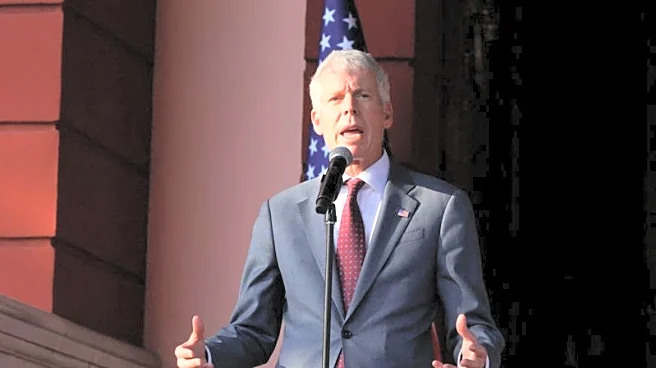What's Happening?
S&P Global has announced its expectation that revenue generated from President Trump's tariff policies will offset the weaker revenue anticipated from his recent tax and spending legislation, known as the 'One Big Beautiful Bill Act.' This announcement comes as S&P Global maintains its AA+ rating on long-term U.S. sovereign debt and its A-1+ rating on short-term unsolicited sovereign credit. The agency warned that the rating could be lowered in the next two to three years if deficits increase due to political challenges in managing spending and revenue changes. The Congressional Budget Office has estimated a net increase in the federal budget deficit of $3.4 trillion from 2025 through 2034 due to the legislation, which includes both spending cuts and tax rate reductions.
Why It's Important?
The maintenance of the U.S. credit rating by S&P Global is significant as it reflects confidence in the country's ability to manage its fiscal policies despite the potential challenges posed by President Trump's tax and spending bill. The reliance on tariff revenue to offset fiscal deficits highlights the administration's strategy to balance the budget amidst tax cuts. This approach could impact various sectors, including international trade and domestic economic stability, as tariffs influence import costs and consumer prices. Stakeholders such as businesses and policymakers will need to navigate these changes, which could affect economic growth and the U.S.'s position in global markets.
What's Next?
S&P Global has indicated that the U.S. credit rating could be under pressure if political developments affect the strength of American institutions or the Federal Reserve's independence. This could jeopardize the dollar's status as the world's leading reserve currency. The Treasury Department reported a significant increase in customs duty collections due to tariffs, but also noted a substantial growth in the federal budget deficit. Future political and economic decisions will be crucial in determining the long-term fiscal health of the U.S., with potential implications for international trade relations and domestic economic policies.











